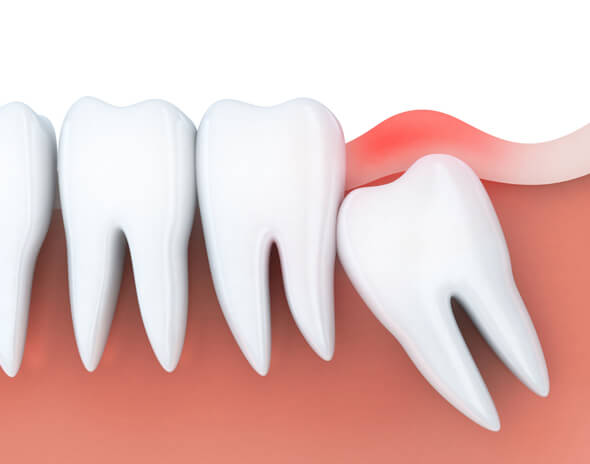Specialist Dentists
Specialist Dentists
Blog Article
Discovering Different Sedation Options for a Comfy Knowledge Pearly Whites Extraction Experience
Local Anesthetic
Local anesthesia is a typically utilized technique for numbing details locations of the mouth throughout knowledge teeth extraction procedures. By administering an anesthetic, such as lidocaine, a dental expert can make certain that the person continues to be comfy and pain-free throughout the extraction process. Local anesthetic works by momentarily obstructing the nerves in the mouth, preventing them from sending out pain signals to the brain. This enables the dental professional to perform the extraction without causing any type of pain to the individual.
Among the key advantages of local anesthetic is its targeted numbing impact, which implies that just the certain location being treated is affected. This local approach lessens the risk of systemic negative effects and enables a quicker healing post-procedure. wisdom teeth removal aspendale. Furthermore, local anesthetic is considered to be a secure and routine practice in dentistry, with minimal risks involved when provided by a qualified expert
Nitrous Oxide

When the mask is eliminated, the effects of the gas put on off promptly, enabling patients to resume their regular activities without sticking around sedative effects. Nitrous oxide is appropriate for people of all ages, making it a flexible sedation alternative for knowledge teeth removals and other oral procedures.
Dental Sedation

Among the main advantages of dental sedation is its ease of management. Unlike intravenous sedation, oral sedation does not require injections or needles, making it a much more comfy alternative for people with an anxiety of needles. Furthermore, oral sedation is considered secure and efficient when administered by experienced dental professionals. Nonetheless, it is vital for individuals to comply with pre-operative guidelines supplied by their dental practitioner, such as avoiding consuming alcohol or consuming before the procedure to make sure the sedative this website medication functions as intended.
IV Sedation
Administered intravenously by experienced doctor, IV sedation is a powerful technique utilized to generate a controlled state of deep leisure and unfamiliarity during dental procedures. Unlike dental sedation, which can be uncertain in its impacts, IV sedation permits exact control over the degree of sedation, making it a suitable selection for complex procedures like wisdom teeth extractions.
During IV sedation, a sedative medicine is supplied straight right into the bloodstream via a blood vessel, permitting it to work rapidly and effectively. This approach guarantees that the individual remains unaware and comfy review of the procedure while still preserving essential features such as breathing and heart rate.
One of the key advantages of IV sedation is its capacity to give a much deeper level of sedation compared to various other approaches, making it specifically ideal for people with high degrees of anxiousness or those undertaking considerable oral job. Furthermore, the impacts of IV sedation typically wear away progressively after the treatment, minimizing the possibility of grogginess or remaining side impacts. In general, IV sedation provides a safe and reliable choice for guaranteeing a comfortable and trouble-free experience during wisdom teeth removal.
General Anesthesia
Having gone over the advantages of IV sedation for wisdom teeth removal, the use of general anesthetic offers an alternative choice for clients requiring a much deeper level of unfamiliarity during oral procedures. General anesthetic causes a regulated state of unconsciousness, ensuring the person really feels no discomfort or discomfort throughout the removal procedure. This approach is particularly useful for people with serious oral anxiousness, complex medical needs, or those going through multiple extractions at the same time.
General anesthetic is administered by an experienced anesthesiologist who carefully monitors the individual's essential indications throughout the procedure. It includes using intravenous medicines or breathed in gases to cause a state of unfamiliarity. While under basic anesthetic, the person will certainly not recognize the surgical treatment, experience any type of discomfort, or have any kind of recollection of the treatment afterward.
Although basic anesthesia is risk-free when administered by certified experts, it lugs a somewhat greater threat compared to other sedation choices. wisdom teeth removal aspendale. Individuals thinking about general anesthesia for wisdom teeth removal ought to go over the potential risks and benefits with their dental practitioner or dental cosmetic surgeon to make a notified choice based upon their private needs and clinical history
Verdict
In conclusion, various sedation alternatives are offered to make certain a comfy wisdom teeth extraction experience. Oral sedation and IV sedation deal much deeper degrees of relaxation, depending on the client's needs.
Nitrous oxide is ideal for individuals of all ages, making it a flexible sedation option for wisdom teeth extractions and various other dental procedures.
Unlike intravenous sedation, oral sedation does not need shots or needles, making it a much more comfortable choice for people with a concern of needles.One of the key benefits of find more IV sedation is its ability to offer a deeper level of sedation contrasted to other approaches, making it specifically suitable for patients with high degrees of anxiousness or those going through extensive oral job.Having actually gone over the benefits of IV sedation for knowledge teeth extraction, the use of general anesthetic supplies an alternative choice for individuals needing a deeper degree of unconsciousness throughout oral procedures. Dental sedation and IV sedation offer much deeper degrees of relaxation, depending on the patient's requirements.
Report this page